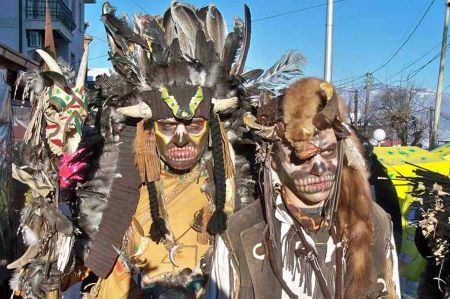Vevčani - Carnival according to the Julian calendar
- Written by Portal Editor
Our main goal for the trip to the village of Vevčani was actually to visit the springs and waterfalls at the foot of the Jablanica Mountains. However, it quickly became apparent that the village itself also had some interesting details; in addition to the ancient houses in the village centre, which have really interesting chimney constructions and, from a structural point of view, also combine a wide variety of construction features.
Who would expect a connection between the turn of the year and carnival according to the Julian calendar in this mountain village in Macedonia? Are you?
Minerals, coins and even some magnificent bonsai
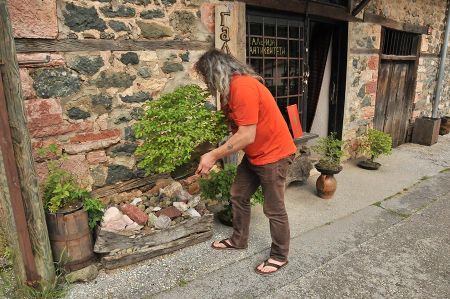 We came across a small shop where, in addition to some antiques, we also came across various minerals, coins and even some wonderful bonsai, which immediately aroused our interest. The owner had once brought the seedlings high from the surrounding mountains and painstakingly raised them over a period of about 20 years, if one can even speak of size when it comes to bonsai.
We came across a small shop where, in addition to some antiques, we also came across various minerals, coins and even some wonderful bonsai, which immediately aroused our interest. The owner had once brought the seedlings high from the surrounding mountains and painstakingly raised them over a period of about 20 years, if one can even speak of size when it comes to bonsai.
He had invested so much effort into the design that one could speak of real trees in miniature. So of course, we quickly found ourselves engrossed in a conversation that went far beyond the topic of bonsai.
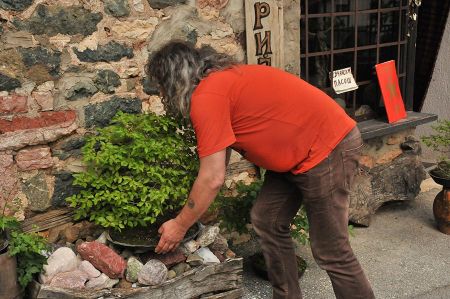 We also noticed some masks in the shop that were surprisingly reminiscent of carnival masks from the strongholds of carnival or carnival and could also have come from there.
We also noticed some masks in the shop that were surprisingly reminiscent of carnival masks from the strongholds of carnival or carnival and could also have come from there.
Now the shop owner booted up his PC and quickly opened a series of photos that pointed to one of the attractions of the village of Vevčani: carnival parade in the village with full costumes due to a traditional New Year's parade, which is celebrated here according to the tradition according to the Julian calendar.
Julian calendar was recognized throughout the Roman Empire
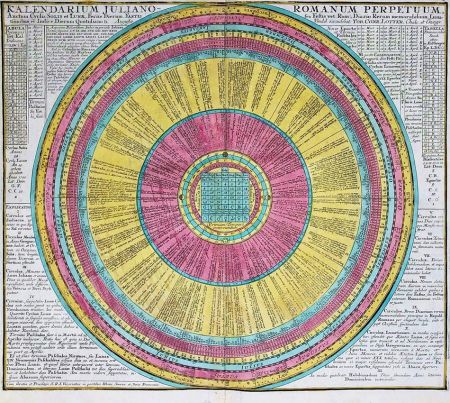 The Julian calendar was introduced by Julius Caesar and was still valid in some parts of the world well into the 20th century, and in the church sector to this day. Appian, Cassius Dio and Macrobius report in their writings that Julius Caesar in 47 BC. B.C. got to know the switching cycle of the later Julian calendar in Hellenized Egypt in Alexandria. The additional information from Macrobius therefore raises the possibility that Julius Caesar travelled to Egypt to discuss the new calendar form of the Julian calendar with experts in the Egyptian calendar, probably including the Egyptian astronomer Sosigenes, after Julius Caesar had introduced the Egyptian calendar had gotten to know Acoreus better.
The Julian calendar was introduced by Julius Caesar and was still valid in some parts of the world well into the 20th century, and in the church sector to this day. Appian, Cassius Dio and Macrobius report in their writings that Julius Caesar in 47 BC. B.C. got to know the switching cycle of the later Julian calendar in Hellenized Egypt in Alexandria. The additional information from Macrobius therefore raises the possibility that Julius Caesar travelled to Egypt to discuss the new calendar form of the Julian calendar with experts in the Egyptian calendar, probably including the Egyptian astronomer Sosigenes, after Julius Caesar had introduced the Egyptian calendar had gotten to know Acoreus better.
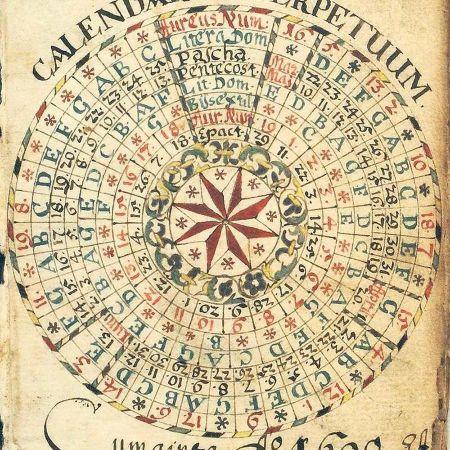 The Julian calendar itself was recognized throughout the Roman Empire, but the beginning of the year varied from region to region. According to the Roman calendar, the beginning of the year was until 153 BC. on March 1st, in Egypt on August 29th, in Constantinople and later also in Russia on September 1st, in the western Mediterranean and widespread in England, Germany and Switzerland on December 25th, later in Great Britain on December 25th. March and in other countries on other days. It was only from the early modern period that January 1st became more or less generally accepted in the West, and in the East only from the early 18th century.
The Julian calendar itself was recognized throughout the Roman Empire, but the beginning of the year varied from region to region. According to the Roman calendar, the beginning of the year was until 153 BC. on March 1st, in Egypt on August 29th, in Constantinople and later also in Russia on September 1st, in the western Mediterranean and widespread in England, Germany and Switzerland on December 25th, later in Great Britain on December 25th. March and in other countries on other days. It was only from the early modern period that January 1st became more or less generally accepted in the West, and in the East only from the early 18th century.
The Julian year is 11 minutes and 14 seconds too long compared to the solar year. This led to an increasing deviation from the path of the sun, which by the 14th century was already more than seven days. Another reason for the Gregorian reform was the spring full moon, which was incorrectly determined using the old Easter formula, on which the date of Easter depends.
Some Orthodox churches (e.g. the Russian, Serbian, Georgian, Macedonian and Ukrainian churches) continue to celebrate all their festivals according to the Julian calendar. Their Christmas (December 25th) currently falls on January 7th (Gregorian). The New Year celebrations will be postponed to January 13th or 14th.
The carnival in Vevčani is not as “sexy” as in Rio
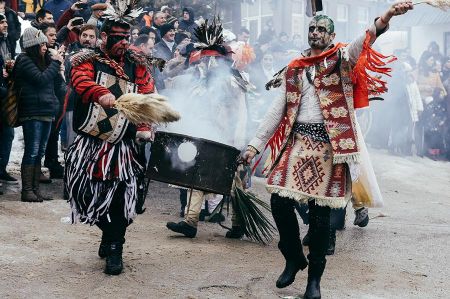 But on this day the whole country is looking at Vevčani. Macedonians and guests from all over the world crowd the narrow streets of the village because it is carnival. The carnival in Vevčani is not as “sexy” as in Rio and not as “stately cool” as in Venice. The pagan rituals and masks of Vevčani's residents are as archaic and wild as the land and climate.
But on this day the whole country is looking at Vevčani. Macedonians and guests from all over the world crowd the narrow streets of the village because it is carnival. The carnival in Vevčani is not as “sexy” as in Rio and not as “stately cool” as in Venice. The pagan rituals and masks of Vevčani's residents are as archaic and wild as the land and climate.
“Disguise yourself well so that evil does not recognize you. Then burn the mask and with it the evil burns away and the good remains” - this is the motto to which one surrenders oneself to a wild spirit, an ecstatic body and lots of wine, thus following ancient traditions that have supposedly been going on for more than 1,400 years.
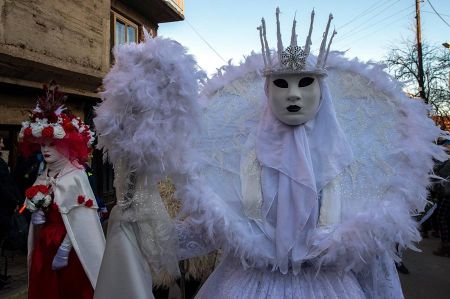 The main protagonists of this activity are the 'stupid Augustin', who comes from Roman antiquity, as well as the bride and groom. These two figures symbolize the new year and the renewed procreation of nature and the cosmos. However, in the rather homophobic Macedonia, no one is bothered by the fact that both the groom and the bride are men. Or they just accept it because in the end the masks are burned and “man” is thus cleansed of all the evil that had afflicted the mind and body in those pagan days.
The main protagonists of this activity are the 'stupid Augustin', who comes from Roman antiquity, as well as the bride and groom. These two figures symbolize the new year and the renewed procreation of nature and the cosmos. However, in the rather homophobic Macedonia, no one is bothered by the fact that both the groom and the bride are men. Or they just accept it because in the end the masks are burned and “man” is thus cleansed of all the evil that had afflicted the mind and body in those pagan days.
In 1993, Vevčani even became a member of the World Carnival Cities Federation.
Please read as well:
